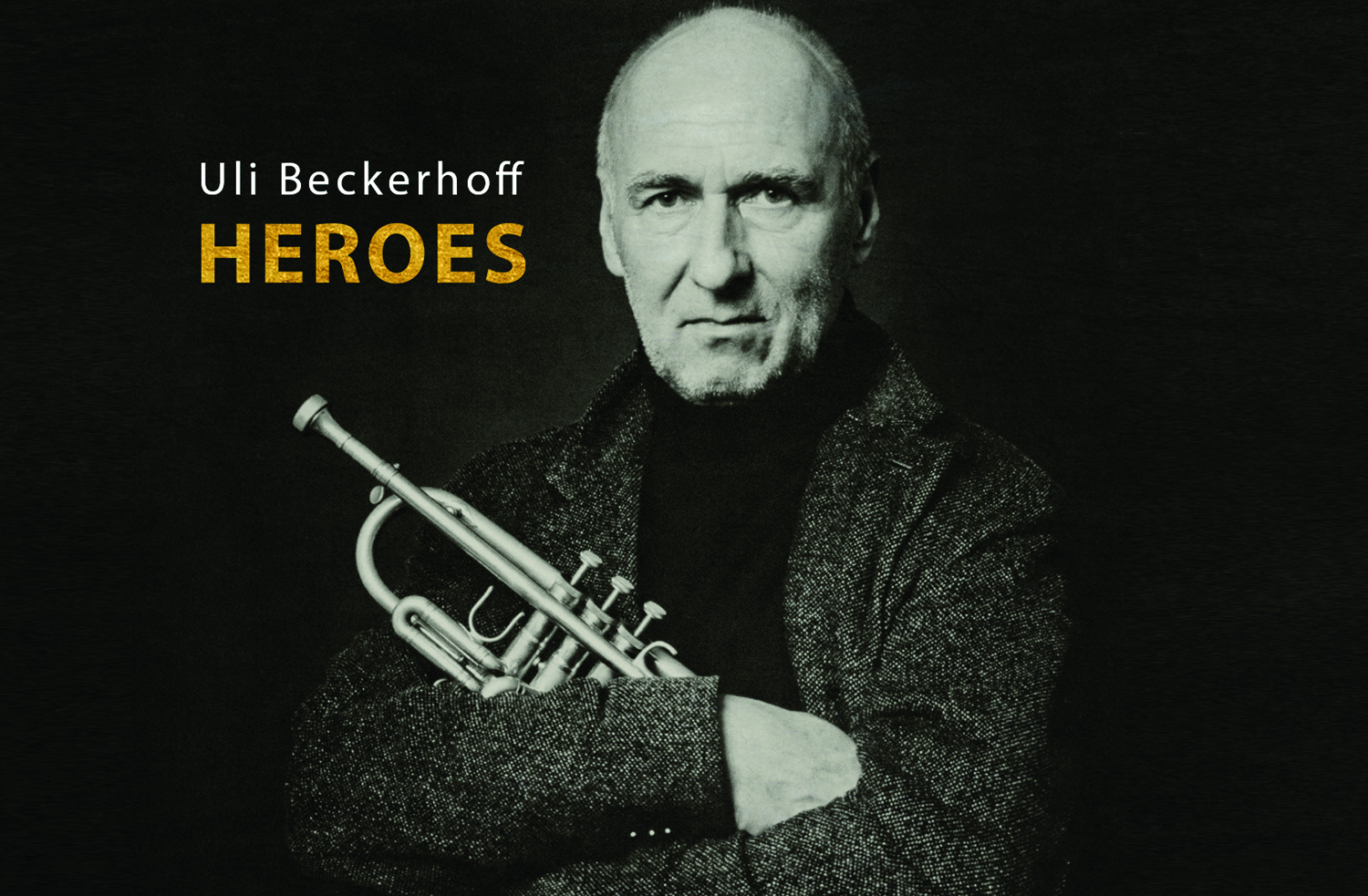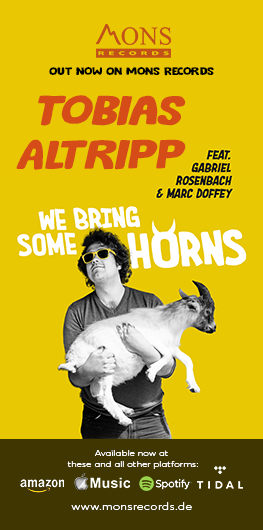By Rob Adams | 1st published by the Herald Scotland.
Everyone has heroes. Even musicians who have been said to have found their own voice as a composer or improviser will have drawn inspiration from someone, and German trumpeter Uli Beckerhoff is no different. A musician who has made his mark across Europe over the past four decades, Beckerhoff has listened widely to music and jazz in particular and if you ask him about his origins as a musician and the people he learned from, he’ll speak warmly of a gallery of people who helped to shape his path.
When Beckerhoff started planning his latest album, Heroes, he wanted to pay tribute to those musicians who have influenced him most. Some of his inspirations, including Miles Davis, John Coltrane and Jimi Hendrix, the Munster-born Beckerhoff had admired from afar.
One in particular, however, was a hero who became a good friend, the Canadian-born trumpeter Kenny Wheeler who arrived in Britain in 1952 and established himself as one of the leading figures on the European, then the world jazz scene, going on to record with another of Beckerhoff’s distant heroes, pianist Keith Jarrett, as his accompanist, no less.
The idea of the legendarily self-effacing Wheeler, who died last September, leading a band featuring Jarrett, a musician not known for lacking self-belief, bemuses Beckerhoff who, as does everyone who came into Wheeler’s orbit, has a story to tell. In the mid-1970s, Beckerhoff got a call to join an orchestra that was being put together in Berlin to work under the London-based Rhodesian composer Mike Gibbs.
“I remember being thrilled to discover that, of course, Kenny was going to be in the trumpet section,” says the Munster-born Beckerhoff. “I knew Mike Gibbs’ records and Kenny was on them, as were a lot of great players. So I was in with some big talents and the first piece we played in rehearsal was something Mike Gibbs had written as a feature for Kenny. It was a lovely piece and Kenny played this wonderful solo and when he finished everyone was astonished – all these heavyweight jazz musicians were nearly crying. It was beautiful, perfect, and I was thinking, I wish I could play something as fantastic as that when Kenny spoke up and said, Mike, could someone else play this solo, please, because I don’t feel confident enough to play it?”
It was a typical Wheeler moment, as Beckerhoff would find out as he got to know him over the years.
Trumpet wasn’t Beckerhoff’s first choice of instrument. His initial interest in playing music came through an art teacher at school who used to let his students bring in their favourite records to listen to in class. A big hit in Germany at the time, the early 1960s, was the Chris Barber Band’s version of Petite Fleur featuring Monty Sunshine on clarinet. This tune was especially popular with the girls in the class and Beckerhoff decided that, if he could play it on clarinet, maybe he’d impress the girls. Clarinets were too expensive, so he bought a second-hand trumpet from a friend for the princely sum of fifty marks (less than £10) and taught himself to play Petite Fleur.
Despite being too young to get into pubs legally, Beckerhoff then joined a Dixieland band and played the pub circuit, sometimes having to hide when the police arrived to check for underage drinkers. He added to his technique by taking lessons, first from an orchestral player who was, he says, “a great trumpeter but a lousy teacher” then from an American based in Munster who had played in the same college band as Freddie Hubbard.
“Without him, I would have stopped,” he says, “although I wasn’t thinking about playing music professionally.”
This changed when he left his university law course after his first year and got into a band that played Cannonball Adderley and Horace Silver numbers, a style of jazz that audiences in Bremen, where he was now based, danced to, much to his surprise. More successful still was the band he formed to play standards and flag wavers such as Blue Bossa and Giant Steps.
“Before that band came along, the German jazz scene was heavily into free jazz so by playing tunes that people knew we became popular and worked a lot,” he says. “But eventually I decided I wanted to concentrate on what I wanted to play, which was my own music.”
The group he formed at this point, a trio with Dutch pianist and keyboards player Jasper van’t Hof and former Soft Machine drummer John Marshall, was the first of a series of bands, including a quartet that included American guitarist John Abercrombie and a quintet with English pianist John Taylor, that cemented Beckerhoff’s reputation in Europe, although he remains under the radar in Britain, a situation he’d like to change.
“Maybe Heroes will open the door,” says the now sixty-seven year old Beckerhoff who these days teaches at the Folkwang University of the Arts in Essen while continuing to play and compose prolifically. “I put the album together like I would do a concert, with different moods and changing dynamics to keep people listening. You have to give audiences variety – that’s why I got my band, who are all former students of mine, to play a tango and to rock out as well as playing jazz ballads and grooves.”
Heroes is available at:
iTunes | Amazon.co.uk | Amazon.de | Amazon.com
Last modified: July 15, 2018











